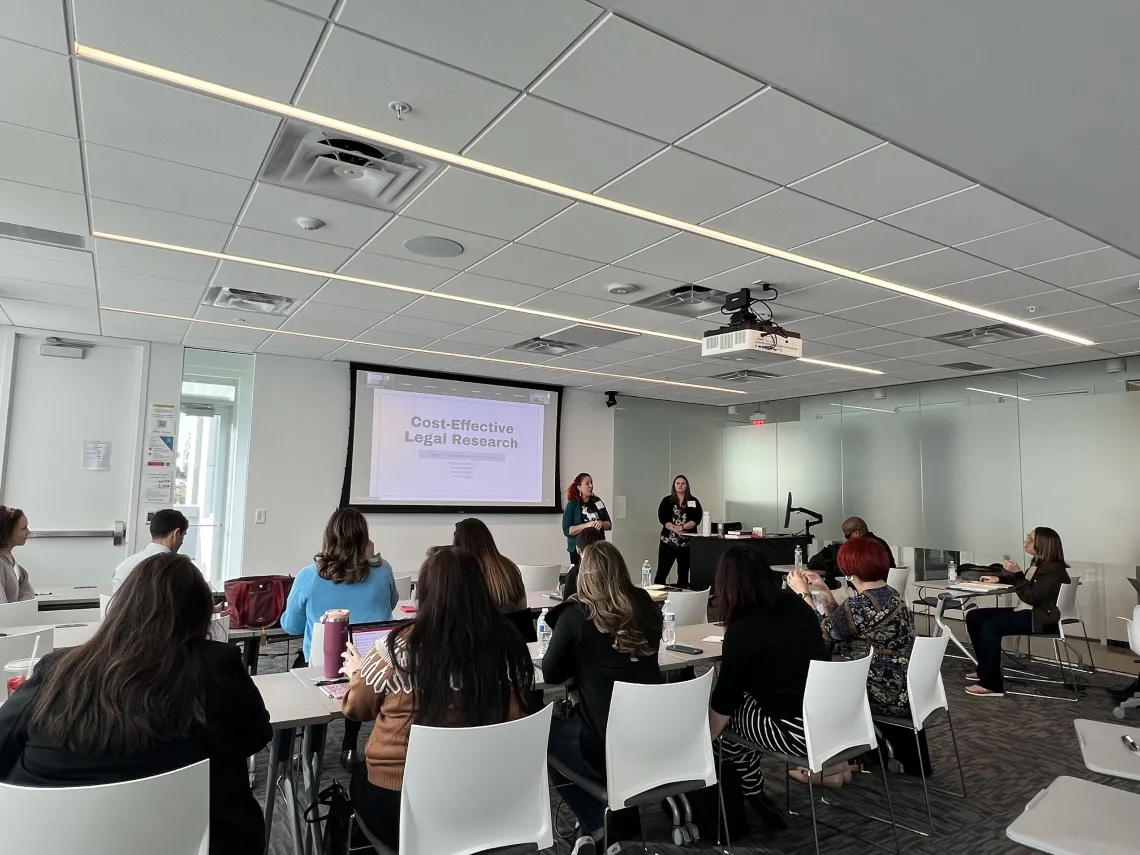First Annual Legal Paraprofessional Summit Addresses Challenges and Solutions for Access to Justice

On January 20 and 21, the University of Arizona James E. Rogers College of Law held its first ever Legal Paraprofessional Summit, bringing together a range of Legal Paraprofessionals (LPs), attorneys, judges and more to discuss LP licensure and professional development.
Arizona has been one of a handful of states leading a movement in the past few years for greater access to legal services through LPs, and in 2021 the state authorized licensing for LPs to provide limited legal services. University of Arizona Law has long been at the forefront of the state’s efforts, with initiatives including offering the only MLS Graduate LP Certificate and the only Arizona Supreme Court certified BA program in the state providing the educational pathways to become an LP. Additionally, students enrolled in the BA program can earn the first ever undergraduate LP certificate beginning this Spring. The Summit continued these LP educational efforts as well as the conversation among leaders of LP initiatives from across the country.
The conference’s in-person sessions were held at the University of Arizona Chandler campus, with video viewing hubs at satellite campuses in Tucson and Yuma, where attendees could participate in discussions and networking. Fully remote attendees also participated from multiple states.
Building Legal Paraprofessional communities
Noting that Arizona-licensed LPs have the same CLE requirements as lawyers, Kristy Clairmont, University of Arizona Law professor of practice and Legal Paraprofessional program coordinator, said that one of the goals of the summit was providing access to affordable CLE and community education.
“LPs need to be able to form their own community,” Clairmont remarked. “Our first batch of LPs [under the new licensing regime] are the ones that are going to be able to provide the best feedback for the way our programs should improve.”
While only a handful of states currently provide some kind of licensing for non-lawyer practitioners, several others are considering such programs. With the growing awareness of LP education and licensure, the Summit provided a forum for sharing best practices and efforts to standardize the profession. Other discussions focused on LP skills and practice including legal research and ethics.
Legal Paraprofessional licensing fills justice gap
Speakers emphasized that Arizona’s LP licensing and similar programs in other states fill an important gap in access to justice. “Every state who’s approaching this new program is approaching it from a place of access to justice,” Clairmont noted after the Summit. “We want to make sure that we’re filling a gap, not just creating another legal service provider that doesn't necessarily do what we’re hoping it does.”
“We have started down the road to a major legal revolution in terms of access to the legal system,” Marc Miller, University of Arizona Law Dean & Ralph W. Bilby Professor of Law, said of the Summit. “There are tremendous obstacles for access to justice, especially in underserved areas. The role of attorneys in meeting these needs remains vital. The role of LP licensing is complementary and provides an important new tool to serve these communities.”
The Summit was billed as the “first annual” program. Already, Clairmont says, the organizing team is debriefing and beginning to work on next year’s Summit. “I’m looking forward to continuing this,” Clairmont said. “It was a great event for the first time ever.”
